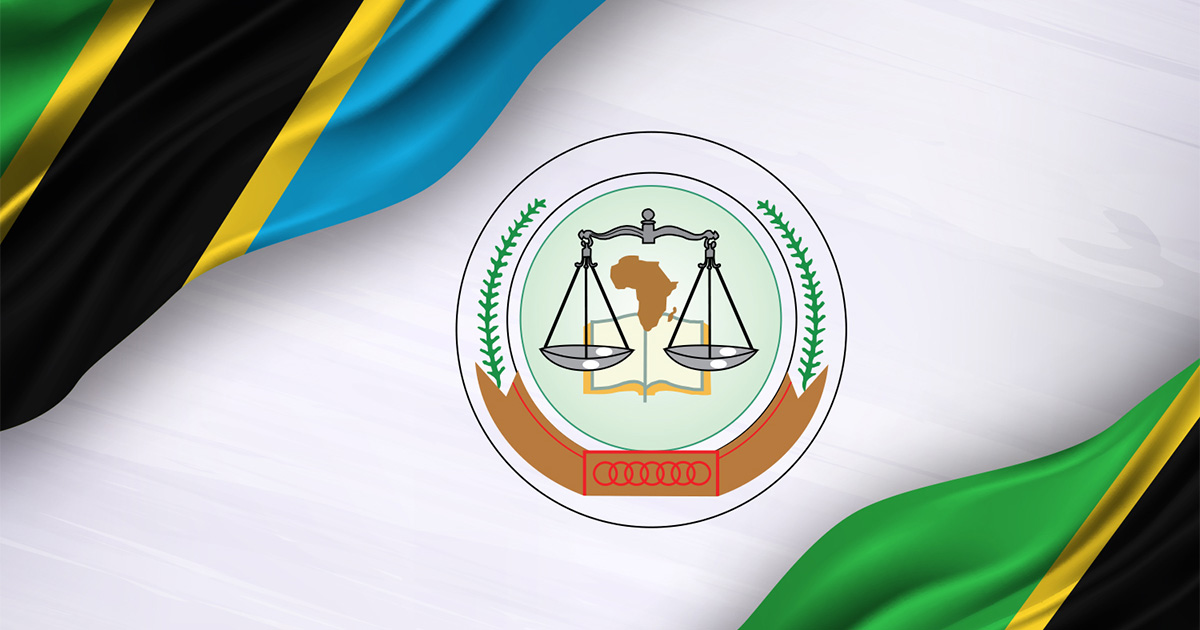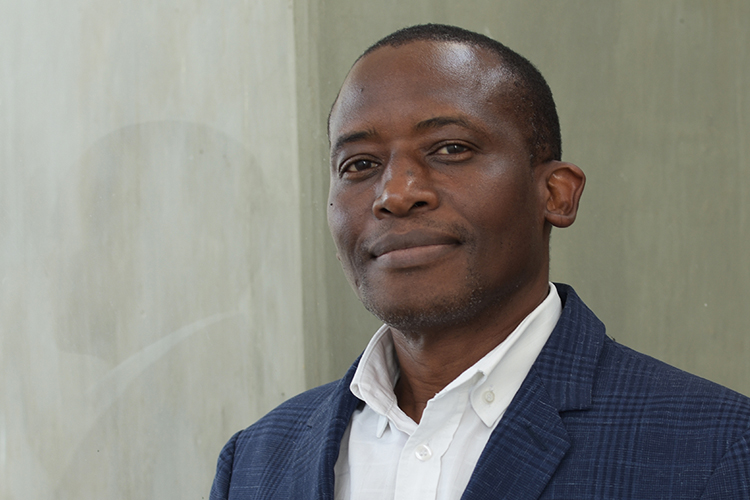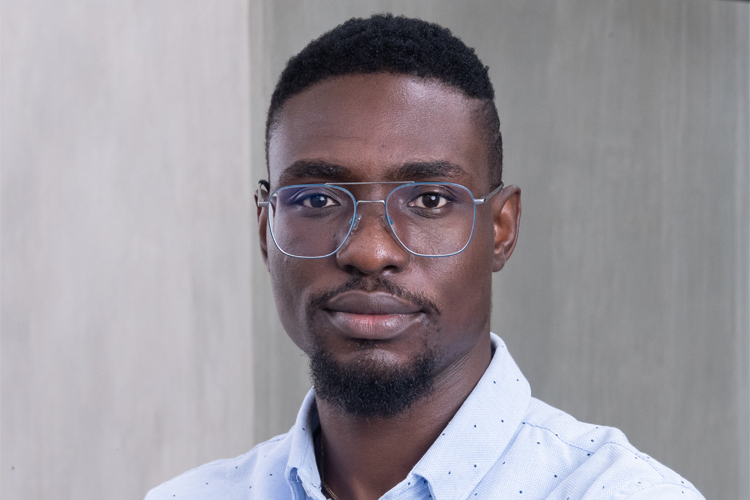On 24 October 2023, the Centre for Human Rights, Faculty of Law, University of Pretoria in collaboration with the Coalition for Effective African Court held a stakeholders’ dialogue on the ratification of the Protocol establishing the African Court on Human and Peoples’ Rights and increased direct access to the African Court on Human and Peoples’ Rights. The event was held as one of the Centre for Human Rights side events during the African Commission on Human and Peoples’ Rights 77 Ordinary session in Arusha, Tanzania.
The event featured panellists comprising of the Chairperson of the African Commission on Human and Peoples’ Rights, Hon Remy Lumbu, the Deputy Registrar of the African Court on Human and Peoples’ Rights, Mrs Grace Kakai, Principal Advocate, and state delegate of Malawi to the 77 Ordinary session of the African Commission, Mr Duncan Zikagwa and a Commissioner of the Ethiopian Human Rights Commission, Dr Abdi Jibril. The event had in attendance over 40 participants including state delegates of Zimbabwe, Eswatini and Uganda. The African Court was also represented alongside the Deputy Registrar by 4 Legal Officers of the African Court. The National Human Rights Institutions of South Africa, Eswatini, Burkina Faso and Uganda were also represented in the event. The event also had in attendance representatives of civil society organisations from different countries.
The Deputy Registrar of the African Court shared some critical data on the low and slow rates of ratification of AU treaties. She attributed the slow rate of ratification to political, financial, and knowledge barriers. The Deputy Registrar highlighted the urgency of accelerating the ratification process of the African Court’s Protocol, expressing her concerns about the pace of one ratification per year, and that if this continues, it will take 21 more years to achieve full ratification for the African Court’s Protocol. The Chairperson of the African Commission in discussing the complementarity emphasized the importance of NGO access to the African Court, noting inconsistencies between access rules for NGOs with the African Commission and the African Court. The state delegate of Malawi, Mr. Duncan, highlighted the dedication of Malawi to the African Court through the countries’ proactive ratification and adoption of measures that facilitate individuals and NGOs' direct access to the African Court. He encouraged other African states to recognize the significance of the African Court and to support strengthening the African Court by ratifying the African Court’s Protocol and ensuring direct access to the African Court for individuals and NGOs. Dr Abdi Jibril provided insights into Ethiopia's reluctance towards international judicial institutions, and international accountability. He noted Ethiopia’s gradual shift towards understanding and supporting international judicial institutions.
Throughout the dialogue, the relationship of the African Court and national courts was emphatically described as complementary, and not competitive. This point was particularly emphasised by Professor Bongani Christopher Majola, the Chairperson of the South African Human Rights Commission who highlighted South Africa's hesitation to allow individual access to the African Court due to concerns about undermining the Constitutional Court. He emphasized the importance of state adherence to international human rights bodies, suggesting that states which respect human rights will face fewer challenges before international human rights bodies.
A conclusion to a series of activities
The Stakeholders dialogue in Arusha draws to an end a series of activities in 2023 by the Centre for Human Rights on strengthening the African Court. Prior to the Stakeholders’ dialogue in Arusha, the Centre has engaged in different meetings in Angola, and Ghana to discuss increased access to the African Court. There was also a conference presentation on the role of the African Court in strengthening good governance in Africa, as part of efforts to enlighten broader stakeholders about the utility of the African Court.
In August 2023, the Assistant Director of the Centre for Human Rights, Lloyd Kuveya had a stakeholders meeting with Ana Celeste Cardoso Januario, the Secretary of State for Human Rights and Citizenship in Angola to discuss the ratification of the Protocol to the African Court by Angola. The Secretary of State for Human Rights expressed the desires of Angola to not only commit to African human rights instruments, but to also implement the obligations arising from the instruments.
Similarly, in September 2023, Lloyd Kuveya and the Programme Manager of the Litigation and Implementation Unit, Foluso Adegalu held a meeting in Kumasi, Ghana with Justice Sophia Akuffo, the former Chief Justice of Ghana and former President of the African Court to discuss the increase in the utilisation of the African Court by stakeholders in Ghana. She highlighted that the low utiilisation of the direct access to the African Court in Ghana can be linked to the confidence of the relevant stakeholders in Ghana’s judicial bodies, thus underscoring the fact that countries with strong rule of law tradition are highly unlikely to open a floodgate of international scrutiny by ratifying the Court’s Protocol and allowing direct access to the African Court.
On 4 September 2023, the Programme Manager of the Litigation and Implementation Unit, Foluso Adegalu delivered a conference presentation on the role of the African Court in promoting good governance in Africa at the 32nd edition of the Christof Heyns African Human Rights Moot Court Competition in Kumasi Ghana. The presentation highlighted that the African Court actively promotes good governance by setting legal precedents and ensuring judicial independence on the continent. The presentation argued that increased ratification of the African Court’s Protocol and increased direct access for CSOs and individuals are essential requirements for the African Court to be a more effective mechanism for promoting good governance on the Continent.
The advocacy campaign on increased direct access and ratification of the African Court’s Protocol is one of the activities of the Centre for Human Rights under its broader project of strengthening national, regional and continental human rights and legal accountability mechanisms which is funded by the Open Society Initiative for Southern Africa (OSISA). The advocacy campaign is organized by the Litigation and Implementation Unit of the Centre for Human Rights.
For more information, please contact:
Litigation and Implementation Unit
Tel: +27 (0) 12 420 3151
foluso.adegalu@up.ac.za




